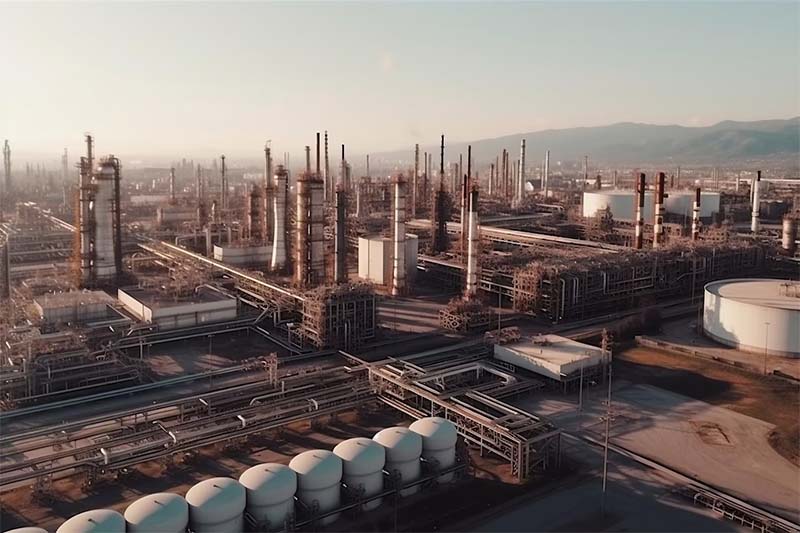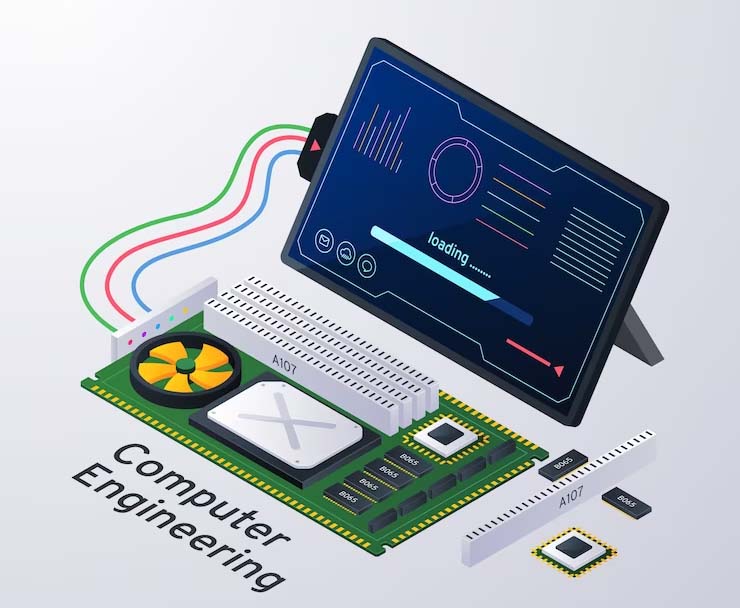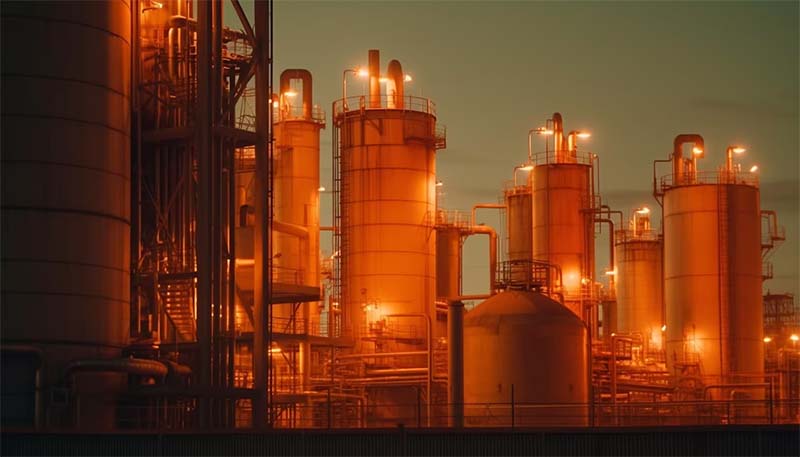Introduction
The petroleum industry has been a cornerstone of modern civilization, but it faces the challenges of efficiency, safety, and environmental responsibility. Mini PCs with Power over Ethernet (PoE) are emerging as a transformative technology in this sector. This integration of computing power and electrical efficiency is reshaping how the petroleum industry operates.
In this blog post, we explore how Mini PCs with PoE are revolutionizing efficiency and safety in the petroleum sector. We’ll dive into what PoE is and why it’s essential in this industry. Discover the tangible benefits, such as improved data management, real-time monitoring, safety enhancements, and even environmental responsibility. Real-world case studies will illustrate how Mini PCs with PoE are transforming operations.

However, this technological shift is not without challenges, and we’ll discuss considerations for successful implementation. As we delve into this innovative merger, it’s evident that Mini PCs with PoE are not just tools but catalysts for change in an industry that fuels the world, making it safer, more efficient, and environmentally responsible.
Understanding PoE
Power over Ethernet (PoE) is a revolutionary technology that enables both data and electrical power to be transmitted over a single Ethernet cable. Traditionally, devices such as security cameras, access points, and network switches required separate power sources. PoE simplifies this by delivering power alongside data, reducing the need for multiple cables and power outlets. This streamlined approach not only saves on installation costs but also enhances flexibility and scalability in industrial settings.
Benefits of PoE in Industrial Applications
In industrial settings, where reliability and efficiency are paramount, PoE offers several key advantages. Firstly, it simplifies infrastructure deployment. With a single cable providing both power and data, installations become more straightforward and cost-effective. This is especially crucial in the petroleum industry, where remote and challenging environments can make infrastructure deployment a complex task. Secondly, PoE allows for remote management and monitoring of devices. This capability ensures that critical equipment can be easily accessed and controlled, improving overall efficiency and reducing downtime.

Relevance of PoE to the Petroleum Industry
The petroleum industry is no stranger to the challenges of remote locations and hazardous environments. Here, PoE’s relevance shines even brighter. In refineries and drilling operations, where safety is paramount, PoE enables remote monitoring of equipment and processes, reducing the need for on-site personnel in potentially dangerous areas. Moreover, PoE can power and connect sensors and cameras for continuous monitoring, enhancing safety protocols and minimizing the risk of accidents.
In summary, Power over Ethernet is a game-changing technology with numerous benefits, including simplified infrastructure, remote management capabilities, and enhanced safety. Its relevance to the petroleum industry is evident in its ability to address the unique challenges faced in this sector, making it a key player in improving efficiency and safety in petroleum operations.
Efficiency Enhancement
Efficiency is the lifeblood of the petroleum industry, and one area where Mini PCs with Power over Ethernet (PoE) are making a significant impact is in streamlining data management within oil refineries. These facilities are complex, sprawling, and filled with critical systems that must work in perfect harmony. Mini PCs equipped with PoE technology play a pivotal role in consolidating data management. They act as powerful central hubs that collect and process data from various sensors and equipment scattered throughout the refinery. This centralized data management not only simplifies operations but also provides real-time insights, enabling quicker decision-making and more efficient resource allocation.
Real-time Monitoring of Equipment and Processes
In the fast-paced world of petroleum production, real-time monitoring is a game-changer, and Mini PCs with PoE are leading the way. These compact yet robust computing devices enable continuous, real-time monitoring of equipment and processes in oil refineries. Whether it’s tracking the performance of pumps, valves, or temperature levels in critical systems, Mini PCs ensure that any deviations or anomalies are detected instantly. This proactive approach to monitoring minimizes the risk of costly downtime and potential safety hazards, contributing significantly to the efficiency and reliability of petroleum operations.
Case Studies Showcasing Increased Operational Efficiency
To illustrate the transformative impact of Mini PCs with PoE in the petroleum industry, let’s delve into a few real-world case studies. In a large-scale oil refinery, the implementation of Mini PCs with PoE resulted in a remarkable 20% reduction in maintenance costs. By enabling predictive maintenance through real-time monitoring, the refinery could address equipment issues before they escalated, saving both time and resources. In another case, a drilling operation witnessed a 15% increase in drilling efficiency thanks to improved data management and remote monitoring capabilities provided by Mini PCs with PoE. These case studies underscore the tangible benefits of this technology in enhancing operational efficiency across various facets of the petroleum industry.

In summary, Mini PCs with PoE technology are catalysts for efficiency enhancement in the petroleum industry. They streamline data management, provide real-time insights, and have a proven track record of delivering tangible efficiency gains, as showcased by these compelling case studies. These miniature powerhouses are not just gadgets; they are the future of efficiency in an industry where every drop of progress counts.
Safety Advancements
In the petroleum industry, safety is non-negotiable. Any technological innovation that can bolster safety protocols is welcomed with open arms, and Mini PCs with Power over Ethernet (PoE) have emerged as a key player in this regard. These compact computing devices are not just about data and efficiency; they are powerful tools for enhancing safety. By integrating Mini PCs with PoE into critical infrastructure, safety protocols can be significantly improved, resulting in a safer working environment for all.
Remote Monitoring of Hazardous Areas
One of the standout features of Mini PCs with PoE is their ability to enable remote monitoring of hazardous areas. In the petroleum industry, there are often places where human presence is risky due to volatile compounds, extreme temperatures, or other dangers. Mini PCs can be equipped with cameras and sensors to provide real-time insights from these areas without exposing workers to potential harm. This capability not only reduces the risk to human life but also ensures that any issues can be addressed promptly, preventing accidents and minimizing downtime.
Reducing Human Exposure to Risk
Reducing human exposure to risk is a paramount goal in the petroleum industry, and Mini PCs with PoE are playing a vital role in achieving this. For instance, in oil drilling operations, Mini PCs can be employed to remotely control and monitor equipment deep beneath the earth’s surface. This means that workers don’t need to be physically present in potentially hazardous environments, reducing the likelihood of accidents and injuries. By minimizing human exposure to risk, these technology-driven safety measures are transforming the industry’s safety landscape.
Success Stories in Safety Improvement
To grasp the full impact of Mini PCs with PoE on safety, let’s explore some success stories. In a large refinery, the implementation of Mini PCs for remote monitoring of high-temperature processes resulted in a 40% reduction in safety incidents over a year. Similarly, in offshore drilling operations, the use of Mini PCs reduced the need for personnel to enter confined spaces, leading to a 25% decrease in safety-related incidents. These real-world examples underscore how technology is actively contributing to safety advancements in an industry where worker well-being is paramount.
In conclusion, Mini PCs with PoE are not just tools for data management and efficiency; they are champions of safety in the petroleum industry. By enhancing safety protocols, enabling remote monitoring of hazardous areas, and reducing human exposure to risk, these compact devices are paving the way for a safer and more secure industry. The success stories serve as a testament to their transformative role in safeguarding the workforce and the environment.

Environmental Impact
In an era marked by growing environmental concerns and the urgent need to address climate change, technology solutions that reduce environmental impact are gaining importance across industries. Power over Ethernet (PoE) technology, with its ability to streamline energy usage, is making significant strides in this regard. In the petroleum industry, where energy-intensive operations are the norm, PoE offers a ray of hope for reducing the sector’s environmental footprint.
Reducing Energy Consumption
One of the primary environmental benefits of PoE is its potential to reduce energy consumption. In oil refineries and drilling operations, numerous devices and systems require power to function efficiently. By transmitting both power and data over a single Ethernet cable, PoE eliminates the need for additional power sources and cables, resulting in a reduction in overall energy consumption. This streamlined approach not only cuts operational costs but also contributes to a more sustainable energy profile for the petroleum industry.
Lowering Carbon Footprint
In the quest to lower carbon emissions, every reduction in energy consumption matters. By embracing PoE technology, the petroleum industry can significantly lower its carbon footprint. The decreased energy demand means fewer greenhouse gas emissions associated with power generation. Additionally, the efficient use of energy resources can lead to reduced reliance on fossil fuels within the industry itself, further mitigating environmental impact.
As the world transitions to more eco-friendly practices, PoE’s capacity to minimize energy use and lower the carbon footprint represents a meaningful step towards sustainability in the petroleum sector. While the industry grapples with the dual challenges of meeting energy demands and reducing environmental impact, PoE serves as a beacon of hope, demonstrating that technological innovation can be a driving force for positive change.
Conclusion
Mini PCs with Power over Ethernet (PoE) are reshaping the petroleum industry by revolutionizing efficiency, safety, and environmental responsibility. These compact powerhouses simplify data management and enable real-time monitoring, making operations more efficient and responsive. They also enhance safety by allowing remote monitoring of hazardous areas and reducing human exposure to risks.
In a world increasingly concerned about sustainability, PoE technology shines by reducing energy consumption and lowering the industry’s carbon footprint. This eco-friendly approach aligns perfectly with the industry’s growing focus on environmental responsibility.
Mini PCs with PoE are not just technological tools; they are transformative forces driving the petroleum industry toward a safer, more efficient, and environmentally conscious future. As technology continues to evolve, PoE’s role in the industry’s progress is set to become even more critical, proving that innovation and sustainability can go hand in hand.